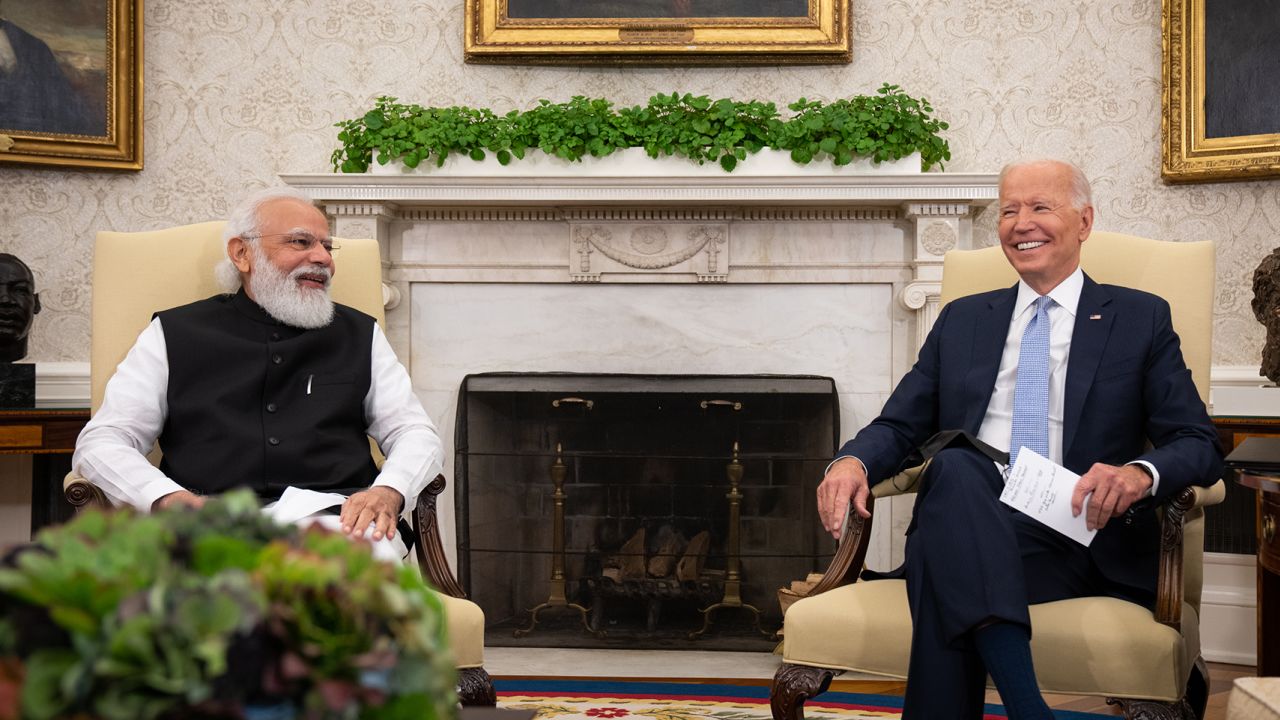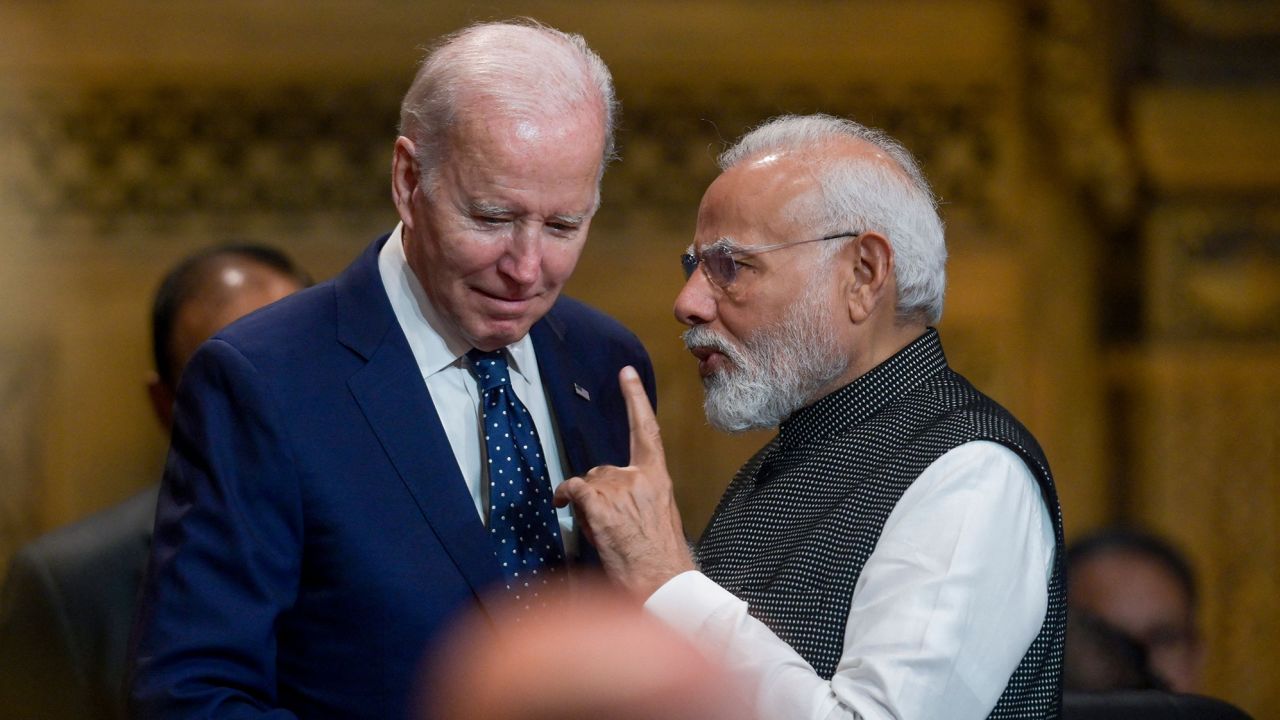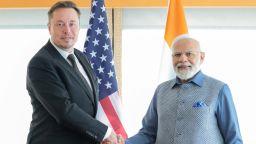Editor’s Note: Frida Ghitis, a former CNN producer and correspondent, is a world affairs columnist. She is a weekly opinion contributor to CNN, a contributing columnist to The Washington Post and a columnist for World Politics Review. The views expressed in this commentary are her own. View more opinion on CNN.
The images the world will see this week as Indian Prime Minister Narendra Modi visits the United States could serve as a turning point in one of the world’s most important relationships. That, at least, is the potential for this eventful week.

Though the US and India had already been on good terms, the planned state visit signals that US leaders are interested in propelling a relationship that could rearrange the global chessboard.
The visit starts on Wednesday, when Modi will lead Yoga Day at the United Nations. But it is Thursday when Washington’s spotlight will bathe him.
First, he will have a quick welcome at the White House and then a speech to a joint session of Congress. Later that day comes the symbolic highlight of the trip, the grand state dinner at the White House, an honor President Joe Biden has granted to only two others since he took office – the presidents of US allies France and South Korea.
It’s hard to believe that the man for whom Washington is rolling out the red carpet is the same one it banned from entering the United States in 2005. His diplomatic visa was denied after the state he led, Gujarat, became the scene of anti-Muslim riots that left hundreds dead. An investigation cleared Modi, and he later became prime minister, a position he has held since 2014.
Modi remains controversial – so controversial that more than 70 congressional Democrats wrote Biden a letter urging him to bring up human rights abuses with Modi – but a meaningful strengthening of the relationship between the US and India could create a powerhouse of an alliance, precisely in the place and at the time when it is most needed.
Indeed, Biden will likely be accused of hypocrisy for playing down issues of human rights and democracy erosion under Modi, both accusations that Modi claims are false. But the times – with Russia’s raging invasion of Ukraine and China raising its anti-western military profile – call for a measure of realpolitik.

Imagine the US, the world’s biggest economy with the strongest military force, joining forces with India, the planet’s most populous country and the world’s largest – if very flawed – democracy, situated in one of the globe’s most strategic locations.
To drape Modi in honors, Washington is making a cold calculation. There is little question Indian democracy has been receding. Though Modi’s administration denies it, human rights organizations say discrimination against Muslims has worsened under Modi and his Hindu nationalist Bharatiya Janata Party. Journalists say they are being muzzled, and opposition politicians are facing prosecutions.
The former leader of the opposition party, Rahul Gandhi, heir to India’s founding dynasty, was sentenced to two years in prison for disparaging the name “Modi.” As a result, he was expelled from Parliament, effectively removed from politics ahead of next year’s elections. Gandhi is currently appealing the sentence.
And yet, India’s fragile democracy is far ahead of others in its vicinity – the ones that most concern the US.
It’s not even close.
The democracy watchdog Freedom House rates India as “partly free.” But it does call it a “multiparty democracy.” Compare that to neighboring China, rated “not free”, and described by Freedom House as an “authoritarian regime” that “has become increasingly repressive.” Or Russia to the north, also rated “not free” and described by Freedom House as an “authoritarian political system” where power is “concentrated in the hands of President Vladimir Putin.”
Leadership means making tradeoffs, and the Biden administration, which has made the quest to stop democratic backsliding a key element of its foreign policy, has already decided how to play this. It is framing the decision by acknowledging the challenges that even the US has endured.
“India and the United States are big, complicated countries,” Secretary of State Anthony Blinken said in a recent speech. Both countries have to work to “strengthen our democracies [a US goal], to unleash the full potential of our people [an Indian goal]” but, he concluded, “the trajectory of this partnership is unmistakable, and it is filled with promise.”
Biden will not turn a blind eye to the more unsettling aspects of Modi’s rule. Officials say Biden will raise the issue of India’s human rights record and democracy backsliding, but it’s likely they will be downplayed. After all, putting human rights publicly at the heart of relations with Saudi Arabia did little more than open the region’s door to China.
Higher on the agenda will be another item of disagreement: Russia. Modi has offered only mild criticism of Putin’s invasion, using the crisis to load up on cut-rate Russian oil. In fact, India increased its purchases of Russian oil ten-fold in 2022, the year the war started. Away from the cameras, Biden will also press Modi on both oil and weapons purchases from Russia, urging him to curtail those purchases.
Biden will try to draw India closer to the US and its allies, and away from Russia and its authoritarian friend, China, which is also a contentious rival of India – their military forces arrayed eye-to-eye at their shared border high in the Himalayas.
Meanwhile, Modi needs to boost India’s economic performance. India has pulled hundreds of millions out of poverty, but its economic growth rate has been much slower than neighboring China’s. Despite being home to some of the world’s wealthiest moguls, India is also home to the world’s largest number of poor people.
Get our free weekly newsletter
Modi – and India – need to raise living standards. Only then can they count themselves truly successful. And, for that, stronger ties with the US could be pivotal.
In addition, Modi also wants stronger military ties, especially in view of its tense relationship with China. That process has already started, with the Biden administration reenergizing the so-called Quad, a Washington-led bloc of Pacific and Indian Ocean powers: Australia, Japan, India and the United States.
If all goes well, the sounds of Modi practicing yoga in New York one day, speaking at the Capitol the next and later being feted at the White House, could mark a new beginning in a history-making relationship – one with far-reaching consequences.

